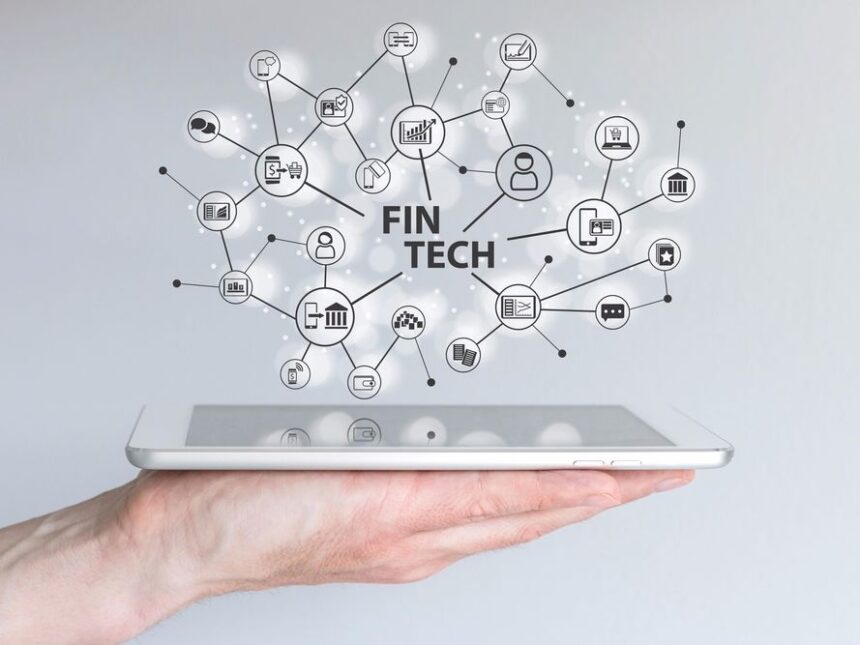Introduction: The Age of Fintech Revolution 🌍
Money has always been at the heart of human civilization, but the way we earn, save, invest, and spend has changed dramatically in the 21st century. This transformation is called the Fintech Revolution. Fintech, short for Financial Technology, is more than just digital payments—it’s the bridge between finance and innovation.
- 🌐 History of the Fintech Revolution
- 📌 Key Facts About the Fintech Revolution
- 📅 Timeline of Fintech Evolution
- 🌟 Significance of the Fintech Revolution
- 🙏 Wishing on the Fintech Revolution
- 📖 Observance & Importance in Daily Life
- ✅ Important Points to Remember
- ⭐ Review Section: Pros & Cons of the Fintech Revolution
- ❓ FAQs on the Fintech Revolution
- 💡 Conclusion: Daily Life Impacts of the Fintech Revolution
- “Finance once belonged only to banks, but fintech belongs to people.”
From mobile banking to cryptocurrencies, from AI-driven loans to blockchain-based identity systems, fintech has redefined how we live, work, and interact with money. The revolution is not only economic but also cultural, making financial systems more inclusive, faster, and smarter.
In this article, we’ll explore the history, timeline, facts, significance, FAQs, reviews, and daily life impacts of the fintech revolution in a human-friendly way.
🌐 History of the Fintech Revolution
The fintech journey is not overnight—it spans decades:
1866 – Telegraph & Financial Communication
The first transatlantic cable enabled cross-border financial communication, marking the earliest seed of fintech.
1950s – Birth of Credit Cards
Diners Club launched the first credit card, allowing people to spend without cash.
1960s – ATMs & Electronic Payments
Barclays introduced the ATM machine in 1967.
Electronic stock trading began to emerge.
1980s – Internet Banking
Banks started experimenting with online banking portals, connecting finance with the internet.
1990s – PayPal Era
PayPal (founded in 1998) made digital payments popular worldwide.
2000s – Mobile Revolution
Mobile wallets like M-Pesa (Kenya, 2007) revolutionized financial inclusion.
2010s – Blockchain & Fintech Startups
Bitcoin (2009) and blockchain technology reshaped finance.
Apps like Square, Stripe, Robinhood, and Revolut changed payments, investing, and banking forever.
2020s – AI & Open Banking
Artificial Intelligence, decentralized finance (DeFi), and regulatory innovations drive the current wave of fintech.
📌 Key Facts About the Fintech Revolution
The global fintech market is expected to surpass $500 billion by 2030.
India is the world’s fastest-growing fintech hub with over 9,000 fintech startups.
China dominates mobile payments—over 80% of transactions are digital.
Blockchain is projected to save banks $20 billion annually by reducing fraud and middlemen.
Fintech adoption is highest among millennials (64%) and Gen Z (71%).
📅 Timeline of Fintech Evolution
| Year | Event | Impact |
|---|---|---|
| 1866 | Telegraph financial transfer | First digital financial communication |
| 1950 | Credit cards introduced | Cashless spending begins |
| 1967 | First ATM | 24/7 access to money |
| 1998 | PayPal founded | Secure online payments |
| 2007 | M-Pesa launched | Mobile banking for the unbanked |
| 2009 | Bitcoin introduced | Decentralized digital currency |
| 2014 | Rise of Stripe & Square | Fintech startups gain traction |
| 2020 | COVID-19 boost | Explosive digital payment growth |
| 2025 | AI-driven finance | Predictive, automated financial services |
🌟 Significance of the Fintech Revolution
Financial Inclusion – Bringing banking to remote areas.
Speed & Convenience – Instant payments, investments, and loans.
Lower Costs – Eliminating middlemen reduces transaction fees.
Transparency & Security – Blockchain ensures data integrity.
Innovation in Banking – Traditional banks now partner with fintech startups.
Global Economy Boost – Fintech fuels entrepreneurship and trade.
🙏 Wishing on the Fintech Revolution
May the fintech revolution continue to empower humanity with:
Inclusive growth – No one left behind.
Safe transactions – Fraud-free systems.
Wealth creation – Equal opportunities for small businesses.
Sustainability – Eco-friendly financial practices.
“💡 Let us wish that fintech becomes a tool of equality, not inequality.”
📖 Observance & Importance in Daily Life
Today, observing the fintech revolution is not about a holiday but about daily usage:
Paying bills via UPI apps.
Investing in mutual funds or stocks through apps like Groww or Robinhood.
Sending remittances instantly to family abroad.
Using BNPL (Buy Now Pay Later) services for shopping.
AI chatbots for banking queries.
Fintech is no longer a choice; it’s an inseparable part of modern life.
✅ Important Points to Remember
Fintech = Finance + Technology.
Started with telegraph & credit cards, evolved into blockchain & AI.
Improves access, speed, transparency, and efficiency.
Plays a major role in financial inclusion and global economy.
⭐ Review Section: Pros & Cons of the Fintech Revolution
👍 Positive Reviews (Pros)
“Fintech apps made my business payments smoother than ever.”
“Investing is no longer scary—apps like Robinhood simplified it.”
“UPI payments in India changed the way we live daily.”
👎 Negative Reviews (Cons)
“Too much dependence on apps—if servers crash, we are stuck.”
“Cybersecurity risks are real—data breaches worry me.”
“Traditional banking feels safer for large savings.”
❓ FAQs on the Fintech Revolution
Q1. What is fintech in simple words?
Fintech means using technology to improve financial services like payments, loans, savings, and investments.
Q2. Is cryptocurrency part of fintech?
Yes, crypto and blockchain are major innovations within fintech.
Q3. Will fintech replace banks?
Not entirely—fintech will partner with banks, not eliminate them.
Q4. Is fintech safe?
Mostly yes, but like all digital systems, it requires strong cybersecurity.
Q5. Which country leads in fintech?
The US, China, and India are global fintech leaders.
💡 Conclusion: Daily Life Impacts of the Fintech Revolution
The Fintech Revolution is more than an industry—it’s a lifestyle shift. Every time you:
Pay with UPI, PayPal, or Apple Pay,
Trade stocks with a few taps,
Get a loan instantly without paperwork,
Or secure savings through AI-powered insights,
—you are living the fintech revolution.
It has made life simpler, faster, more inclusive, and globally connected. However, with great power comes responsibility—ensuring data security, digital literacy, and ethical use of technology are the keys to shaping a better future.
👉 The fintech revolution is not ending—it’s only beginning. And each of us is a part of this story.








